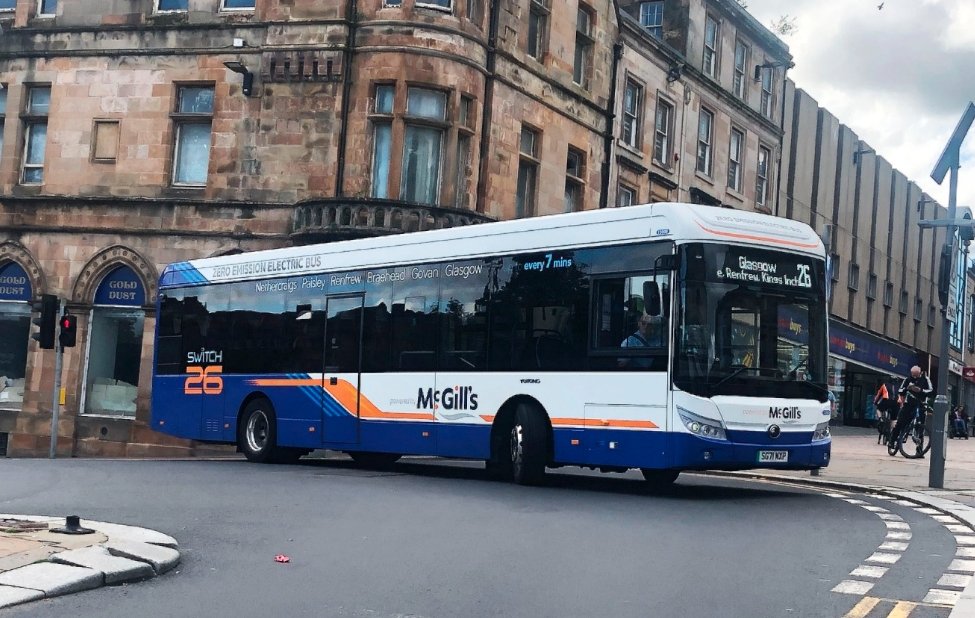A campaign to bring buses in the Strathclyde region under public control has received support from various organizations, including trade unions, environmental groups and health charities. The campaign aims to improve the quality, affordability and accessibility of bus services in the area, which covers 12 council areas and has the largest number of bus users in Scotland.
Why public buses are needed
The campaign, called Better Buses for Strathclyde, argues that the current bus system is not serving the needs of the communities or the environment. It claims that buses are unreliable, expensive and poorly connected with other modes of transport. It also points out that private bus companies are cutting routes and raising fares despite receiving public subsidies.
The campaign says that by taking buses back into public control, Strathclyde Partnership for Transport (SPT) can set routes that serve the needs of communities, ensure affordable fares and create a transport system that links up with trains and ferries. It also says that public buses can help reduce carbon emissions and air pollution by encouraging people to use public transport instead of cars.
Who supports the campaign
The campaign has gained support from a wide range of organizations, including the Scottish Trades Union Congress, Friends of the Earth Scotland, Glasgow City Parents Group and Get Glasgow Moving. These organizations have different reasons for backing the campaign, such as protecting workers’ rights, tackling climate change, improving health outcomes and enhancing social inclusion.

Ellie Harrison, a committee member at Get Glasgow Moving, said: “Buses across Strathclyde are unreliable and too expensive – the private companies running the vital services continue to cut routes and hike up fares despite the vast public subsidies they receive. It’s a disaster for our economy, society and our environment. By taking buses back into public control, SPT can cut fares and deliver one simple, affordable ticket across all transport modes – like Greater Manchester is doing right now.”
Gracie Bradley, the director of Friends of the Earth Scotland, said: “We need to start thinking of public transport as an essential service, like education or health. Bringing buses back into public control is the first step in making sure it’s available and affordable for everyone.”
How to join the campaign
The campaign has launched a petition to urge SPT to re-regulate the buses in Strathclyde. The petition aims to reach 2000 signatures and has already gathered more than 1500. Anyone who wishes to sign can do so here.
The campaign also encourages people to share their stories and experiences of using buses in Strathclyde on social media using the hashtag #BetterBusesForStrathclyde. The campaign hopes to raise awareness and pressure SPT to take action.
What are the challenges
The campaign faces some challenges in achieving its goal of public buses in Strathclyde. One of them is the legal framework that regulates bus services in Scotland. The Transport (Scotland) Act 2019 gives local transport authorities more options to improve bus services in their areas, such as running their own bus services, forming partnerships with operators or developing a franchising framework. However, these options require certain conditions and processes to be met, which may take time and resources.
Another challenge is the opposition from some private bus operators, who may resist losing their market share or profits. Some operators may argue that they provide better quality and efficiency than public buses or that they respond better to customer demand and innovation.
A third challenge is the lack of political will or support from some local authorities or politicians, who may have different priorities or agendas than the campaign. Some may prefer to focus on other modes of transport, such as rail or cycling, or may have ties or interests with private bus companies.
What are the examples
The campaign draws inspiration from other examples of successful public bus systems in Scotland and elsewhere. One of them is Lothian Buses, which is publicly owned by four local authorities in Edinburgh and surrounding areas. Lothian Buses is widely praised for its high-quality service, low fares and customer satisfaction. It also operates a tram service and a low-emission zone.
Another example is Greater Manchester, which recently became the first city-region in England to take back control of its buses after a long campaign by local activists and politicians. Greater Manchester will introduce a franchising system that will allow it to set routes, fares and standards for all bus services in the area. It will also integrate buses with other modes of transport through a single ticketing system.
What will happen next
The campaign hopes that SPT will listen to its demands and take steps to re-regulate the buses in Strathclyde as soon as possible. It also hopes that more people will join the campaign and voice their support for public buses.
However, it is unclear how SPT will respond to the campaign or what actions it will take. SPT has said that it is developing a Strathclyde Regional Bus Strategy to look at the future of bus services in the area and that it will consider all options, including the provisions of the Transport (Scotland) Act 2019. It has also said that it welcomes the input and views of all interest groups and parties.
Will SPT take buses back into public control or will it stick to the status quo? Will the campaign succeed in its goal or will it face resistance and obstacles? The fate of buses in Strathclyde hangs in the balance.


















